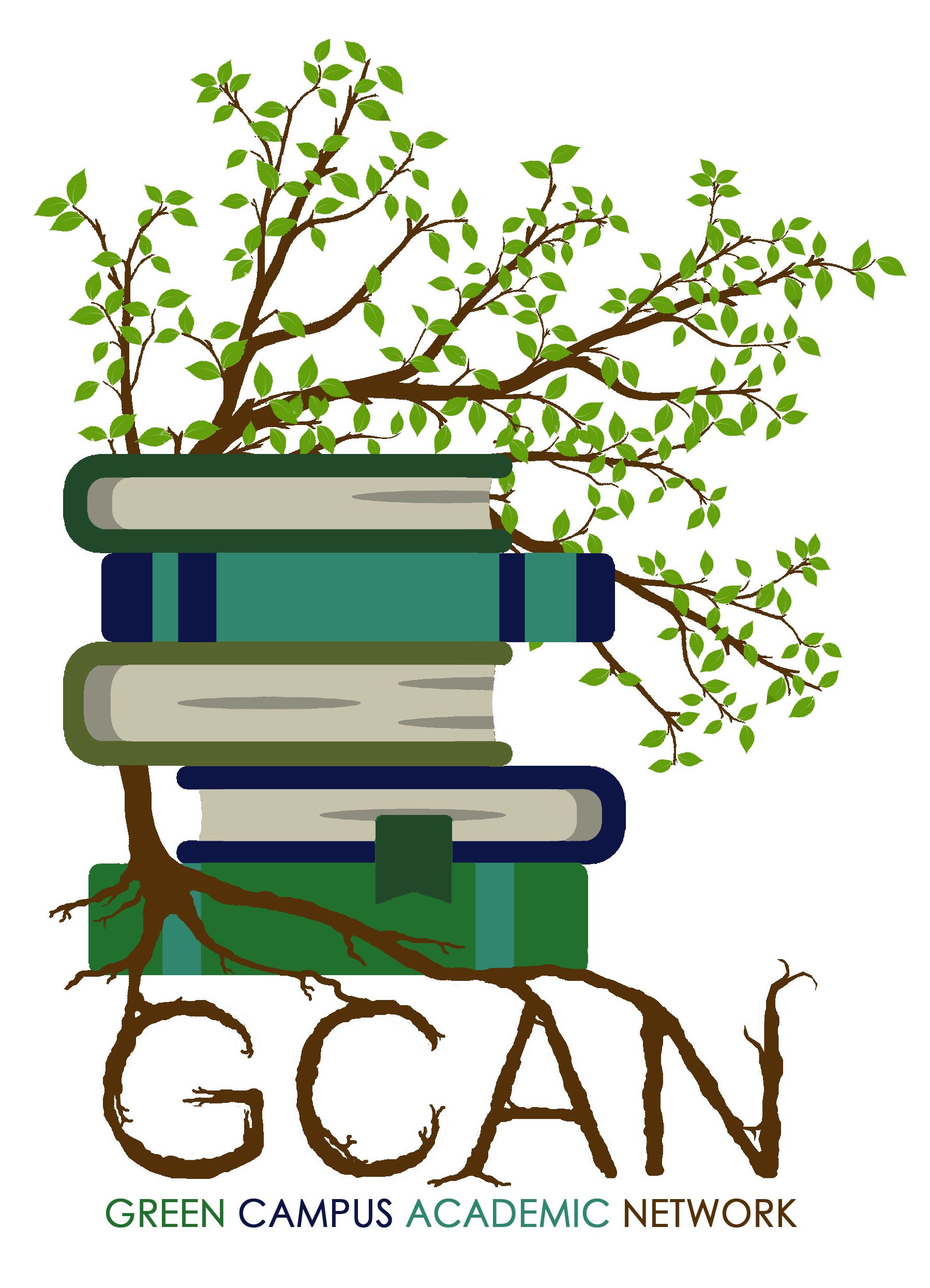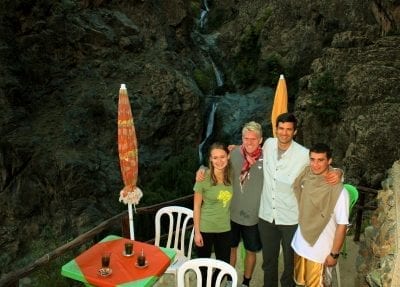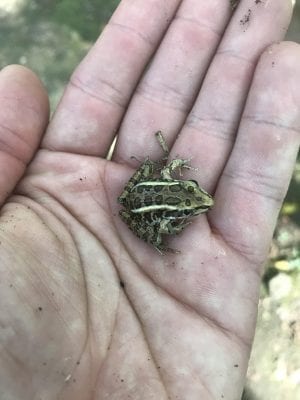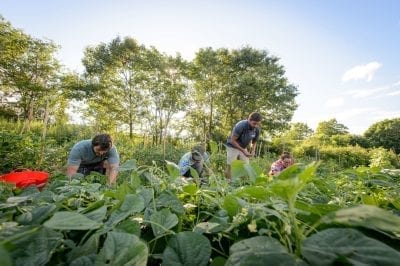Green Campus Academic Network
The Green Campus Academic Network (GCAN) assembles faculty, staff, and students from a variety of disciplines to promote sustainability-related engagement and leadership. By advancing hands-on, experiential learning opportunities and using green campus features and facilities to serve both operational and academic needs, GCAN extends the classroom to the campus and beyond.
As a collaborative led by the Office of Sustainability, Center for Environmental Sciences and Engineering (CESE), Office of Public Engagement, and EcoHouse, GCAN promotes the campus as a “living laboratory,” one that highlights best practices and facilitates research demonstration projects. The OS furthers GCAN’s mission of raising sustainability awareness by conducting green campus and building tours, presenting guest lectures, developing dashboards and digital posters, and advising class projects.

The Green Campus Academic Network is composed of the following sustainability initiatives:
Experiential Learning – Academic Programs, Class Projects, Guest Lectures, Tours
Faculty members who teach various courses at UConn integrate classroom learning with semester-long projects that encourage students to consider campus sustainability. In the past, students designed proposals for viable sustainability initiatives and projects to be implemented on campus, compared campus infrastructure to municipalities in developing countries, collected air quality monitoring data at locations on campus, and presented research findings at poster sessions. GCAN members engage their students in these kinds of campus sustainability projects, or integrate green campus tours, guest lectures, discussion groups and extra credit opportunities.
Carol Atkinson-Palombo GEOG
Shahid Farooqi PHYS
Tom Harrison NRE / Environmental Law
Christine Kirchhoff ENVE
Chris Simon EEB
John Volin and Lauren Cisneros NRE
Kristina Wagstrom CHEG
UConn@COP
A group of GCAN members collaborated to organize trips to COP 21 in Paris, COP 22 in Marrakech, and COP 23 in Bonn. The Conference of Parties (COP) is a yearly United Nations climate change conference that brings together delegates and government officials from throughout the world to take action on combatting climate change through greenhouse gas emissions reduction. At the conferences, UConn students, faculty, and staff attend sustainability-themed lectures, exhibits, and workshops on topics such as public health and human rights, hosted by NGOs, companies, and government officials and agencies. The experience is enriching and engaging for those who attend as well as the UConn community, through social media and presentations following the trip. The following faculty and sustainability staff have supported UConn@COP:

Carol Atkinson-Palombo GEOG
Oksan Bayulgen POLS
Kathyryn Libal HRTS
Joe MacDougald Environmental Law
Rich Miller OEP
Sarah Munro OEP
Jim O’Donnell MARN
Tracy Rittenhouse NRE
Anji Seth GEOG
Lawrence Silbart AH
Scott Stevenson GEOG
Mark Urban EEB
Guiling Wang CE
Biotic Inventory of Campus

During the drafting of UConn’s 2020 Vision for Campus Sustainability and Climate Leadership, there was a desire to incorporate the expansion of biodiversity of plant types on campus. This initiative is responsible for organizing and performing a baseline study of the plant types found across campus, and using this baseline data as a means to improve campus biodiversity. Increasing plant type biodiversity will minimize maintenance and enhance the experiential and educational value of the campus arboretum. The Biotic Inventory group includes the following members:
Mike Willig EEB
Sean Vasington UPDC
Spring Valley Student Farm as a Living Laboratory

Spring Valley Student Farm offers faculty and students the opportunity to explore and research topics including sustainable, organic food growing methods. The farm is utilized as a living laboratory for students and local community members through various outreach programs. Current projects at the farm include the installation of solar thermal panels to heat the soil in the greenhouse through water circulation, and an aquaponics system that utilizes a closed loop of nutrients that travel between a tank of coy fish and beds of growing plants. The following faculty and staff members are involved in implementing these projects:
Julia Cartabiano SVSF
Richard Parnas CHEG / EcoHouse
Julia Yakovich Service Learning